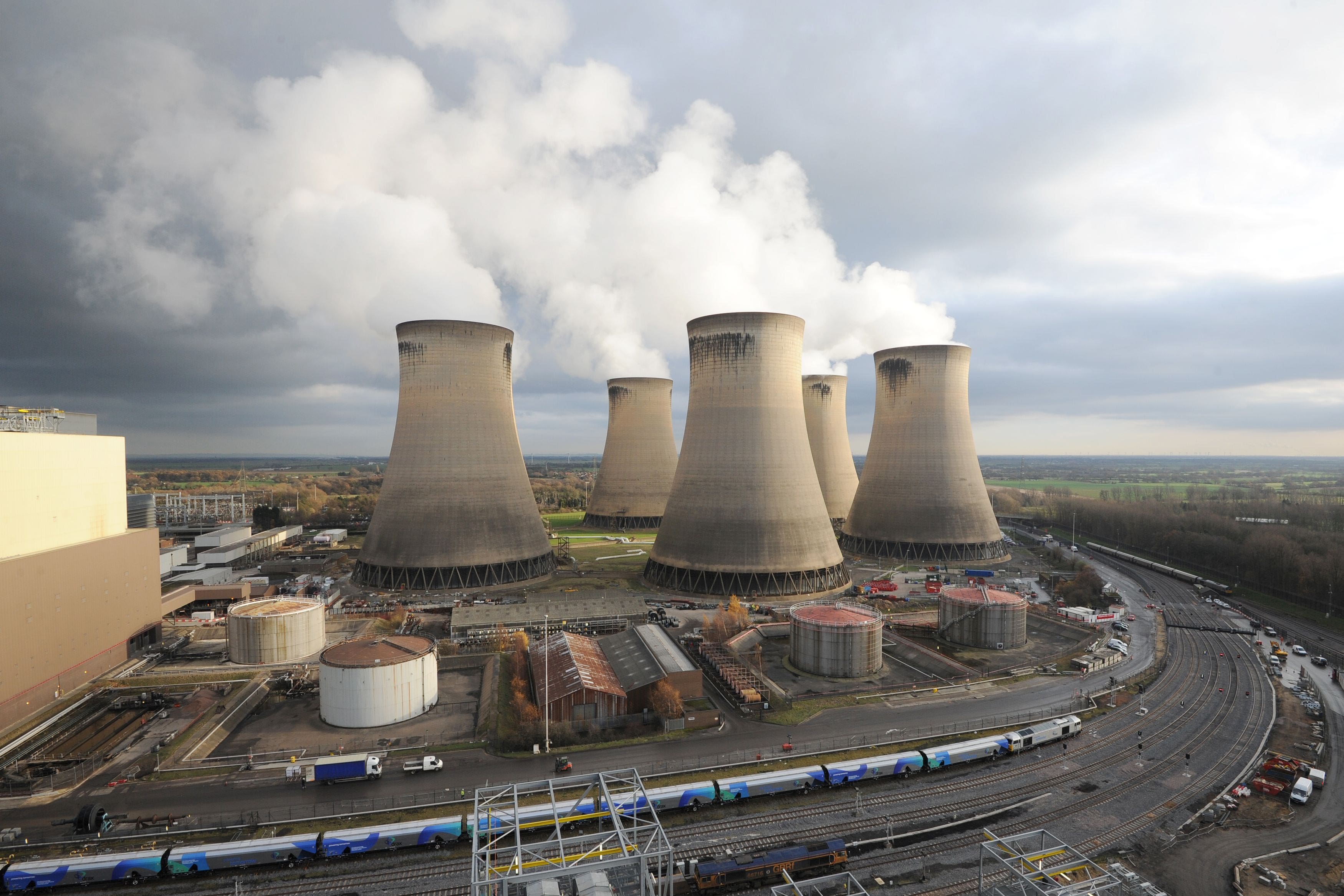Drax boss denies company is Europe’s fourth largest carbon emitter
Speaking in front of MPs, Will Gardiner said emissions from his power plant, which burns wood pellets, are different from those of fossil fuel sites.

Your support helps us to tell the story
From reproductive rights to climate change to Big Tech, The Independent is on the ground when the story is developing. Whether it's investigating the financials of Elon Musk's pro-Trump PAC or producing our latest documentary, 'The A Word', which shines a light on the American women fighting for reproductive rights, we know how important it is to parse out the facts from the messaging.
At such a critical moment in US history, we need reporters on the ground. Your donation allows us to keep sending journalists to speak to both sides of the story.
The Independent is trusted by Americans across the entire political spectrum. And unlike many other quality news outlets, we choose not to lock Americans out of our reporting and analysis with paywalls. We believe quality journalism should be available to everyone, paid for by those who can afford it.
Your support makes all the difference.The boss of Drax – which collects hundreds of millions of pounds in renewable energy subsidies – has denied the firm is the fourth largest carbon emitter in the European Union.
Speaking in front of MPs on Tuesday, Will Gardiner said emissions from his power plant, which burns wood pellets, are different from those of fossil fuel sites.
“It’s a different type of emission, which needs to be recognised as important,” he said during examination by Darren Jones, who chairs the Business, Energy and Industrial Strategy select committee.
Quizzed by Mr Jones on whether Drax is the second largest emitter of carbon dioxide in the country, Mr Gardiner repeatedly refused to answer the question.
We produce 11% of the UK’s renewable power, we are a critical component when the wind is not blowing and the sun is not shining
Last year his business received around £800 million in renewable energy subsidies in the UK despite the 13.3 megatonnes of carbon dioxide that its accounts say it emitted.
“I’m disputing your characterisation of our business,” Mr Gardiner told Mr Jones during the exchange.
He said that the former coal-burning company has “decarbonised our business faster than any other power company in Europe”.
Mr Jones responded: “Yeah, but from coal. That’s not difficult, right?”
Mr Gardiner was also asked about data from Ember – a think tank – which claims that “Drax is the EU’s fourth largest carbon dioxide emitter among coal plants when biomass emissions are included”.
He told MPs: “I have not seen that data, but I absolutely do not agree with that.”
Drax says the electricity it produces in its power plant comes from burning wood – so the carbon it emits has already been absorbed from the atmosphere by the trees it burns.
Its final ambition is to capture the carbon that comes out of its smokestacks in Yorkshire, so that most of it is not released into the air.
That way the business can take the trees that have absorbed carbon during their lifetimes, burn them for energy, then capture that carbon back and store it underground.
If this works at scale and uses highly sustainable forestry practice it could allow the business to remove carbon from the atmosphere.
“We produce 11% of the UK’s renewable power, we are a critical component when the wind is not blowing and the sun is not shining,” Mr Gardiner said.
“I think we have some extremely exciting plans to invest further to take CO2 permanently out of the environment in the UK.”
Also speaking to MPs, Dr Daniel Quiggin, a senior research fellow at the Chatham House think tank said it was “utterly bizarre” that a company emitting that much gets major subsidies for renewable energy.